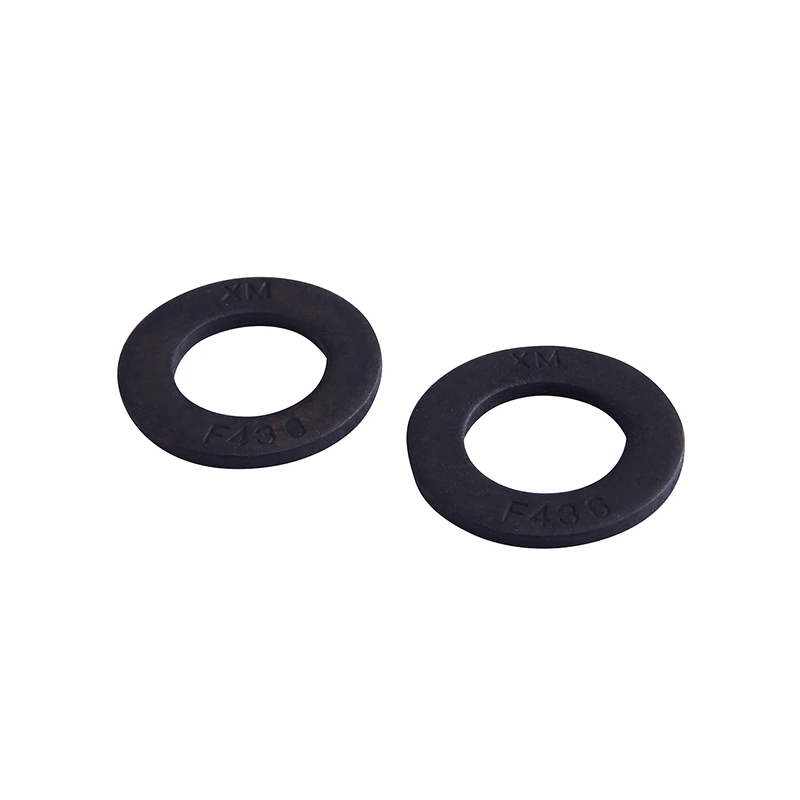How Tooth Lock Washer Disperses Pressure from Bolts or Nuts
 2024.09.19
2024.09.19
 Industry news
Industry news
Tooth Lock Washer is a kind of anti-loosening fastener commonly used in mechanical connections. Its main function is to prevent bolts or nuts from loosening under vibration, impact or load. In addition to its anti-loosening effect, Tooth Lock Washer also has the function of dispersing pressure, which is essential for improving the stability and durability of the connection. The following will detail how Tooth Lock Washer effectively disperses the pressure of bolts or nuts during operation, thereby improving the overall performance of the connection.
1. Structural Design of Tooth Lock Washer
The structural design of Tooth Lock Washer is the basis of its pressure dispersing function. It usually consists of a circular metal washer with multiple small teeth distributed on the surface. These teeth can be bent inward or outward, depending on the type of washer. The design of the teeth makes it bite with the connection surface when the bolt or nut is tightened, generating friction.
2. Working principle of pressure dispersion
Tooth Lock Washer effectively disperses the pressure of bolts or nuts through the following aspects.
Distribution of teeth: The teeth of Tooth Lock Washer are distributed on the inner edge, outer edge or in between the washers. This design can distribute the pressure applied to the connection to multiple teeth, thereby avoiding the concentration of all pressure in a single location. Each tooth shares the pressure by embedding into the contact surface, so that the pressure on the entire connection surface is evenly distributed.
Increased contact area: When the bolt or nut is tightened, the teeth of Tooth Lock Washer will cut into or bite into the connection surface. This bite effect increases the actual contact area and reduces the concentration of pressure on a single contact point. A larger contact area can effectively disperse the pressure from the bolt or nut and prevent local overload.
Uniform pressure distribution: The teeth of Tooth Lock Washer can be evenly distributed throughout the washer, ensuring uniform distribution of pressure. This uniform distribution reduces material fatigue or damage caused by excessive local pressure. For example, in large structural parts, toothed lock washers can effectively prevent material deformation or rupture caused by concentrated pressure.
Vibration and shock buffering: In a vibrating or shocking environment, Tooth Lock Washer can absorb and buffer the pressure caused by vibration to a certain extent through the bite effect of teeth. This buffering ability not only improves the stability of the connection, but also reduces the local pressure concentration caused by vibration.
3. Pressure dispersion effect in application
In actual application, the pressure dispersion effect of Tooth Lock Washer is reflected in many aspects.
Improve the stability of the connection: By dispersing the pressure, Tooth Lock Washer reduces the risk of loosening bolts or nuts due to pressure concentration. This stability is particularly important in high-vibration and high-load application scenarios such as mechanical equipment, automobiles, and aerospace.
Prevent material fatigue: The uniform distribution of pressure reduces overload at a single location, thereby preventing material fatigue and damage. In long-term use, this effect significantly improves the durability and reliability of the connection.
Reduce maintenance costs: Because Tooth Lock Washer effectively disperses pressure, wear and deformation of the connector are reduced, reducing the frequency of maintenance and replacement. This saves maintenance costs and also increases the service life of the equipment.
Tooth Lock Washer effectively disperses the pressure exerted on the connection by the bolt or nut through its unique tooth design. Its working principle is based on the bite effect of the teeth, the increase of contact area, the uniform distribution of pressure, and the buffering of vibration and impact. This design improves the stability of the connection, prevents material fatigue, and reduces maintenance costs. The correct selection and installation of Tooth Lock Washer can significantly improve the reliability and durability of mechanical connections, and it is an indispensable component in modern engineering.



 English
English русский
русский











 Products
Products Tel: 86-574-62101087
Tel: 86-574-62101087 E-mail:
E-mail:  Add: Xiaocao 'e Binhai Industrial Park, Yuyao, Zhejiang, China
Add: Xiaocao 'e Binhai Industrial Park, Yuyao, Zhejiang, China